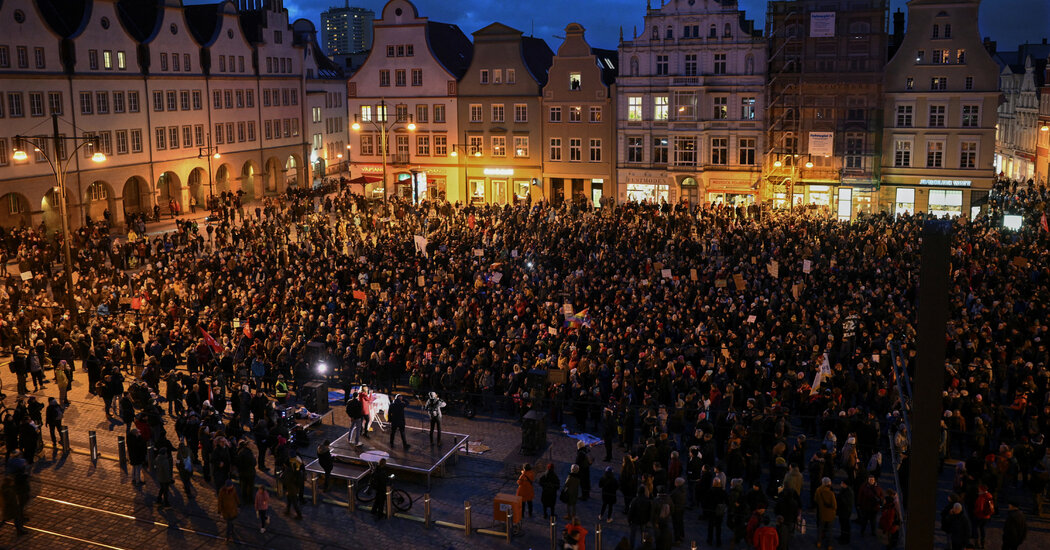- cross-posted to:
- worldnews@lemmit.online
- cross-posted to:
- worldnews@lemmit.online
As cases proliferate, opponents fear the Alternative for Germany party is becoming a tool of Russian influence operations to undermine support for Ukraine.
To enter a secret session of Germany’s Parliament, lawmakers must lock their phones and leave them outside. Inside, they are not even allowed to take notes. Yet to many politicians, these precautions against espionage now feel like something of a farce.
Because seated alongside them in those classified meetings are members of the Alternative for Germany, the far-right party known by its German abbreviation, AfD.
In the past few months alone, a leading AfD politician was accused of taking money from pro-Kremlin strategists. One of the party’s parliamentary aides was exposed as having links to a Russian intelligence operative. And some of its state lawmakers flew to Moscow to observe Russia’s stage-managed elections.



This is the best summary I could come up with:
“The AfD keeps acting like the long arm of the terrorist state Russia,” Roderich Kiesewetter, the deputy head of the Parliament’s intelligence committee and a member of the center-right Christian Democrats, wrote on social media.
“This would be a whole new situation with regards to Russia, where the people making propaganda, passing information, could also actually be in power,” said Martina Renner, a lawmaker from the Left party, who sits on the Parliament’s domestic security committee.
Last month, Czech and Belgian authorities accused Mr. Medvedchuk of being part of a Russian “influence operation” that funneled money and cryptocurrency through a media platform, Voice of Europe, to politicians from at least six European countries in return for spreading Kremlin propaganda.
Two months ago, an investigation by The Insider and Der Spiegel published what it described as communications over an encrypted messaging service last year between Wladimir Sergijenko, an aide to an AfD member of Parliament, and a Russian intelligence operative.
Purported encrypted communications between Mr. Sergijenko and the intelligence operative discussed AfD plans to file a lawsuit aimed at stalling or stopping the delivery of German arms to Ukraine, including much-needed tanks, by charging that the government had failed to seek parliamentary approval.
A top aide to Tino Chrupalla, a leader of the AfD, published an article on an obscure website connected to Aleksandr Dugin, a right-wing ideologue whose concept of a “Russian World” helped inspire Mr. Putin and the invasion of Ukraine.
The original article contains 1,364 words, the summary contains 242 words. Saved 82%. I’m a bot and I’m open source!